




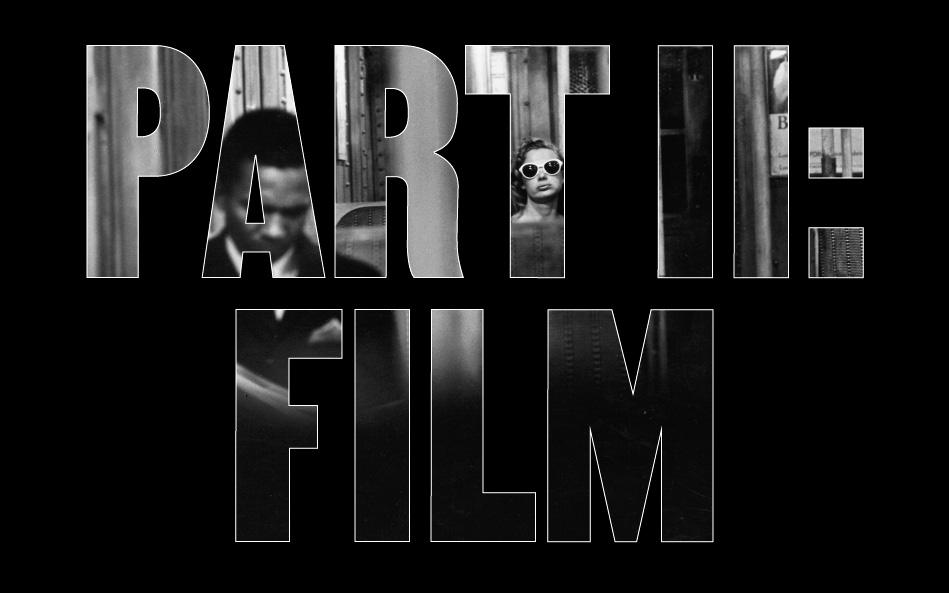
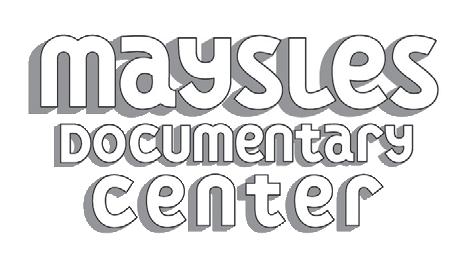
Address: 150 Convent Avenue at West 135 Street, New York, NY 10031 Phone: 212.281.9240 ext. 19 | Website: www.harlemstage.org @harlemstage @myharlemstage Friday, November 11, 2022, 7:30PM Harlem Stage Gatehouse BLACK ARTS MOVEMENT: EXAMINED DUTCHMAN FILM & CONVERSATION
The Black Arts Movement: Examined series and conference have been made possible by a generous grant from the Mellon Foundation.
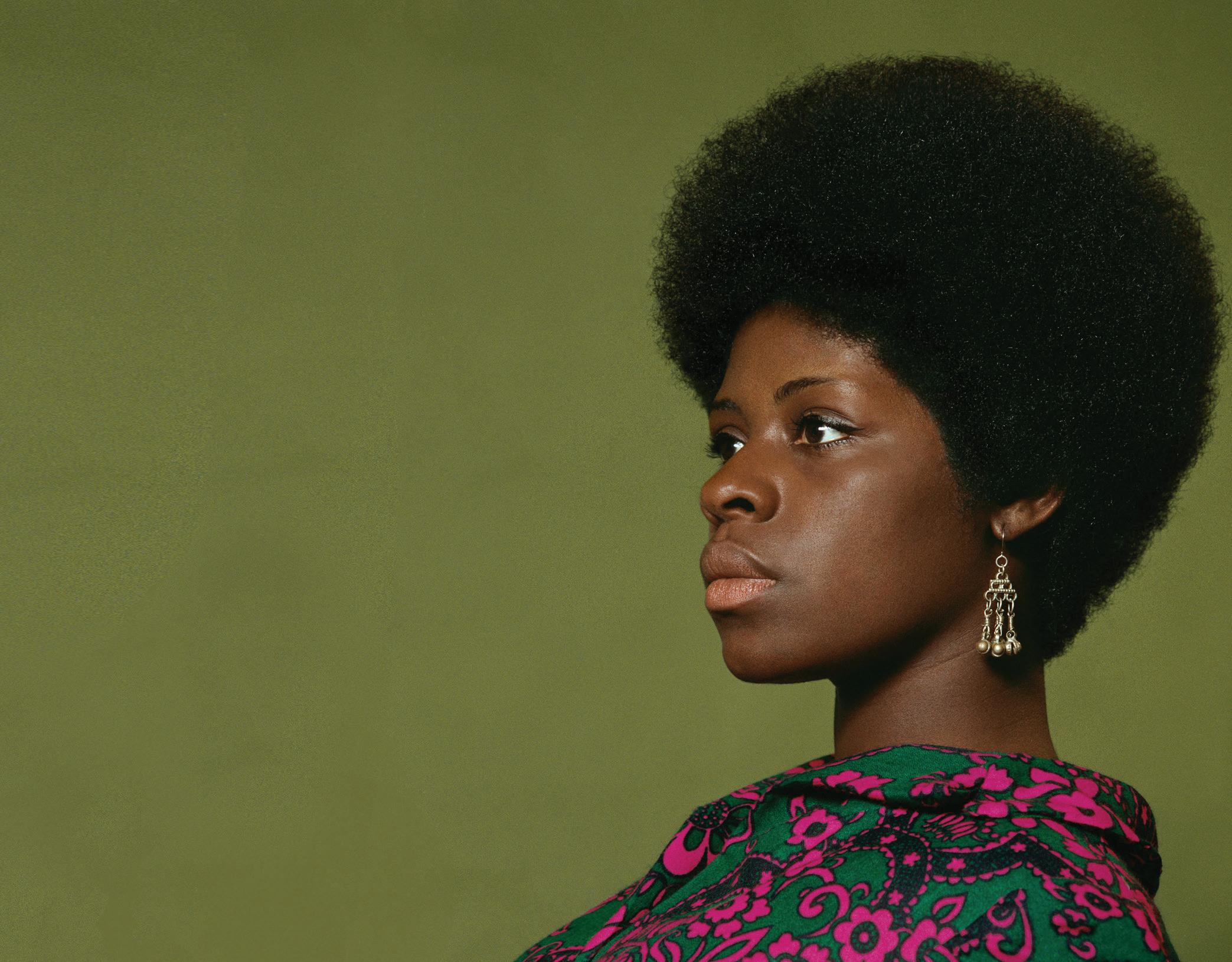
FRI, OCTOBER 14
PART I: INTRODUCTION
Pat Cruz & Carl Hancock Rux
In Conversation featuring a performance of a work-inprogress by The FHP Collective
FRI – SAT, MARCH 24 – 25
7:30PM | $25 / $15
PART V: THEATER Excerpts, Readings, and Conversation Funnyhouse of a Negro by Adrienne Kennedy
FRI, NOVEMBER 11 7:30PM | $25 / $15
PART II: FILM
Dutchman Film & Conversation
Presented in collaboration with Maysles Documentary Center
THU – SAT, APRIL 13 – 15 7:30PM | $35 / $25
PART VI: DANCE E-MOVES
Our signature dance series presenting works inspired by the Black Arts Movement.
FRI – SAT, JANUARY 27 – 28
7:30PM | $35 / $25
THU – SAT, MAY 18 – 20 | 7:30PM

PART III: POETRY
Music & Poetry: Thulani Davis + Wadada Leo Smith
FRI – SAT, FEBRUARY 24 – 25
7:30PM | $35 / $25
PART IV: MUSIC
Max Roach’s We Insist! Freedom Now Suite Reimagined feat. Michela Marino Lerman
PART VII: BLACK ARTS MOVEMENT: THEN AND NOW CONFERENCE
The Black Arts Movement Conference is a three-day event featuring panels, discussions, essays, and performances that reflect, examine, and point to the full experience and culture of the Black Arts Movement, culminating in a concert curated by Vernon Reid.
7:30PM | $25 / $15
CALENDAR
PICK-3 OR MORE PACKAGE Enjoy 25% OFF of your purchase when you buy tickets to 3 or more live events!
FROM THE ASSOCIATE ARTISTIC DIRECTOR/CURATOR-IN-RESIDENCE

Over the course of the 2022/2023 Season, Harlem Stage examines the Black Arts Movement of the 1960s to the 1970s, and its relationship to race, gender, sexuality, music, photography, film, poetry, theater, and dance, as well as its intersectionality with the larger Black Power Movement. Harlem Stage also intends to raise key questions that remain relevant to artistic production: what is the relationship between art and politics and what is the role of the politically conscious artist?


Harlem Stage will convene seven programs, culminating in a spring conference and concert, paying tribute to the groundbreaking writers, poets, visual artists, musicians, and intellectuals who attempted to situate their work within the political, economic, social, historical, and artistic context of Black Americans. Employing roundtables, public dialogues, and screenings, Harlem Stage also intends to explore controversial areas of tension between the intellectual, ethical, and commercial imperatives of the Black Arts Movement, its scholarship, and the professional demands many of its leaders (given the constraints, and disparate doctrinal paths of debate, within its institutional academy) imposed upon artists, and whether or not the Black Arts Movement’s libertarian, racism-countering goals were ever truly achieved.
Employing “conversations” between highly esteemed sovereigns of the Black Arts Movement and a contemporary generation of artists, Black Arts Movement: Examined centers itself within a dialogue that is both historically and culturally relevant in the ever-changing present world.
Hancock Rux Associate Artistic Director/Curator-in-Residence
Carl
Photo by Kwame Brathwaite
THE ARTISTIC DIRECTOR & CEO

When Carl Hancock Rux and I first started discussing his joining the staff of Harlem Stage as our Associate Artistic Director and Curator-in-Residence, our conversations centered on how a practicing artist with an active career would be able to adjust to the various responsibilities associated with the running of an arts organization. More significantly we talked about curatorial processes involving the design and implementation of our programs within the context of a team. Even before we sealed the deal for his engagement, made possible through the generosity of the Mellon Foundation, Carl, who had presented his art at Harlem Stage for over 30 years, was brimming with ideas. Certainly something that I should have expected, but when one of his many ideas was to propose a yearlong series of programs examining the Black Arts Movement, I was deeply moved and inspired.
Essentially, I cut my teeth in performance and administration as a participant in the Black Arts Movement almost accidentally as the young partner of the artist, Emilio Cruz, who reluctantly left a career in the NY art world to join the Black Arts Group (BAG) in St. Louis. It was life-changing in many unexpected ways. We were suddenly in the center of an amazing group of artists and activists who mixed their dedication to creative work with the idea of building and transforming community, confronting the social and political strictures that reinforced racist oppression. In part as a response to the Civil Rights movement of the ’60s, we marched, we protested, and we created art meant to respond to and challenge the status quo. Carl and I spent many hours discussing the parallels between those times 50 years ago to the police killings of Black men, women, and children and the continued oppression that inspires the Black Lives Matter movement of today. The ultimate parallel is the creative response of contemporary artists, looking back and creating forward.

Cycles abound sometimes more quickly than we can record or absorb. The point of the series that Carl has conceived, and programmed collaboratively with myself, Managing Director Eric Oberstein, and Programming Manager Yunie Mojica, is not only to absorb, but it is also to examine, to expand our understanding, to learn from the past through the lens of transformative art. As an organization that sits proudly at the intersection of art and social justice, this examination of an arts movement born out of resistance exemplifies the mission of Harlem Stage. I hope that you will join us and participate with us in this examination.
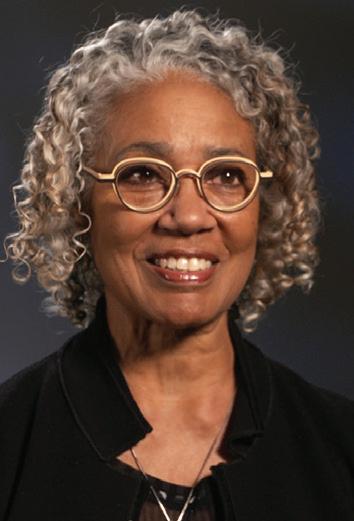 FROM
Artistic Director & CEO
Photo by Kwame Brathwaite
FROM
Artistic Director & CEO
Photo by Kwame Brathwaite
ABOUT THE EVENT
Presented in collaboration with Maysles Documentary Center, Harlem Stage presents the film, Dutchman, by Amiri Baraka, which is based on his 1964 OBIE Award-winning one act play of the same name that originally premiered at The Cherry Lane Theater. Following the screening, Harlem Stage Artistic Director & CEO Pat Cruz will speak with writer, poet, and Black Arts Movement artist David Henderson about, Amiri Baraka, the film, and his influence on the Black Arts Movement.”
Having a profound effect on theatergoers and critics, Baraka’s play, Dutchman, was adapted as a British film in 1967, produced by Gene Persson; directed by first-time director, Anthony Harvey (Academy Award nominee for his direction of the historical drama, The Lion In Winter); and starring acclaimed actor, Al Freeman, Jr., and two-time Academy Award-nominated actress, Shirley Knight.
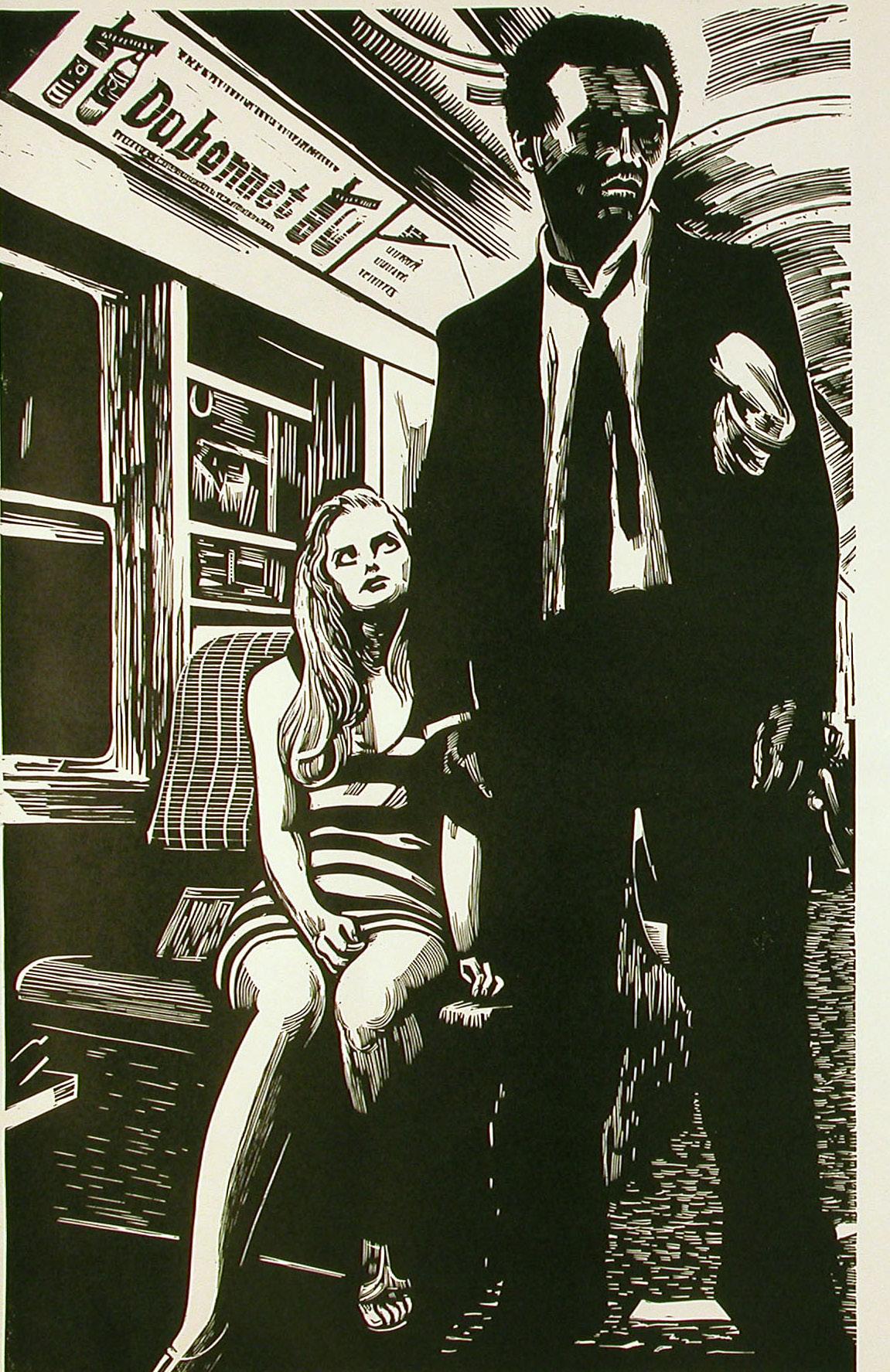
Thank you for joining us!
Harlem Stage
PERSONNEL
All Dutchman images courtesy of the BFI National Archive.
Pat Cruz Artistic Director & CEO
David Henderson Writer, Poet, Black Arts Movement Artist
BIOGRAPHIES
AMIRI BARAKA

POET, PLAYWRIGHT, AND SOCIAL ADVOCATE
Amiri Baraka was born Everett LeRoi Jones in Newark, New Jersey, on October 7, 1934. His father, Colt Jones, was a postal supervisor; Anna Lois Jones, his mother, was a social worker. He attended Rutgers University for two years, then transferred to Howard University, where in 1954 he earned his BA in English. He served in the Air Force from 1954 until 1957, then moved to the Lower East Side of Manhattan. There he joined a loose circle of Greenwich Village artists, musicians, and writers. The following year he married Hettie Cohen and began co-editing the avant-garde literary magazine Yugen with her. That year he also founded Totem Press, which first published works by Allen Ginsberg, Jack Kerouac, and others.
He published his first volume of poetry, Preface to a TwentyVolume Suicide Note, in 1961. From 1961 to 1963 he was co-editor, with Diane Di Prima, of The Floating Bear, a literary newsletter. His increasing mistrust of white society was reflected in two plays, The Slave and The Toilet, both written in 1962. Blues People: Negro Music in White America, which he wrote, and The Moderns: An Anthology of New Writing in America, which he edited and introduced, were both published in 1963. His reputation as a playwright was established with the production of Dutchman at the Cherry Lane Theatre in New York on March 24, 1964. The controversial play subsequently won an Obie Award (for “best off-Broadway play”) and was made into a film.
PAT CRUZ
ARTISTIC DIRECTOR & CEO OF HARLEM STAGE
Patricia Cruz has served as the Executive Director, and board member, of Harlem Stage since 1998. A highlight of her tenure has been the state of the art renovation of the Gatehouse, the organization’s home since 2006, and the rebranding of Harlem Stage.
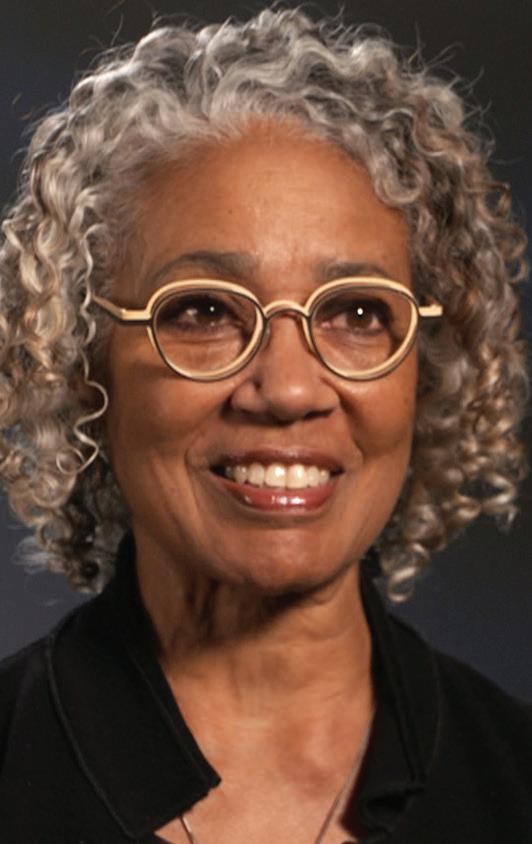 Photo by The HistoryMakers.
Photo by The HistoryMakers.
BIOGRAPHIES
OUR SUPPORTERS
DAVID HENDERSON
BLACK ARTS MOVEMENT ARTIST, WRITER, AND POET
David Henderson (born September 19, 1942) is an American writer and poet. Henderson was a co-founder of the Black Arts Movement in the 1960s. He has been an active member of New York’s Lower East Side art community for more than 40 years. His work has appeared in many literary publications and anthologies, and he has published four volumes of his own poetry. He is most known for his highly acclaimed biography of rock guitarist, Jimi Hendrix, which he revised and expanded for a second edition which was published in 2009.

Henderson’s first poetry collection, Felix of the Silent Forest, appeared in 1967. In the title poem, the cartoon character Felix the Cat “walks the City hungry in every sense,” representing disenfranchised blacks and others spurned by American society. These poems introduced many of Henderson’s recurrent images and themes, such as the forest in the city and the assassination of Malcolm X. They Are Killing All the Young Men was dedicated “to the memory and eternal spirit of Malcolm X.” In his introduction to the collection, Amiri Baraka (LeRoi Jones) wrote that the poems were “local epics with the breadth that the emotional consciousness of a culture can make.”

This program is supported, in part, by public funds from The New York City Department of Cultural Affairs in Partnership with the City Council.
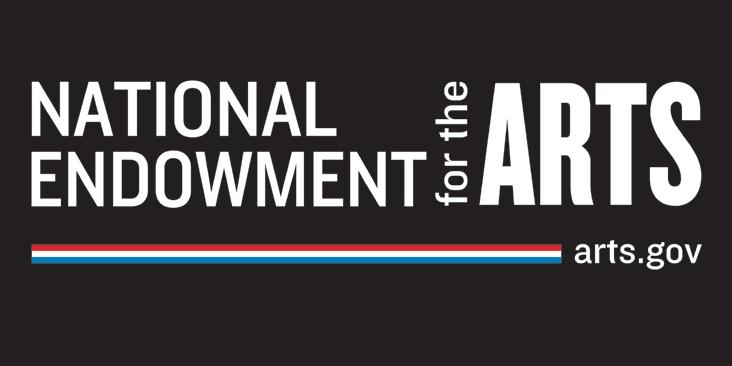
Harlem Stage’s Programs are made possible by the New York State Council on the Arts with the support of the Office of the Governor and the New York State Legislature.
This project is supported in part by an award from the National Endowment for the Arts.
ABOUT HARLEM STAGE
Harlem Stage is the performing arts center that bridges Harlem’s cultural legacy to contemporary artists of color and dares to provide the artistic freedom that gives birth to new ideas.
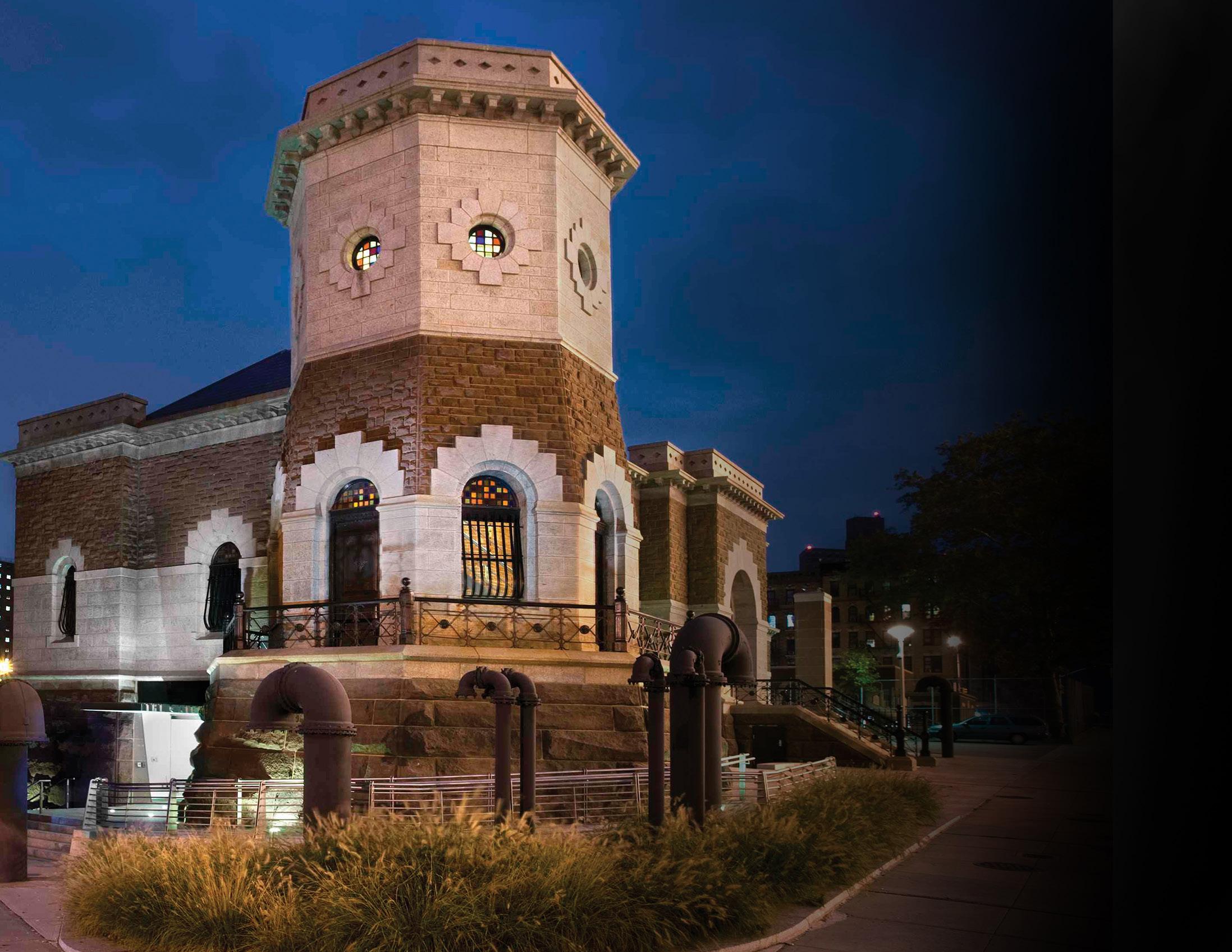
For nearly 40 years our singular mission has been to perpetuate and celebrate the unique and diverse artistic legacy of Harlem and the indelible impression it has made on American culture. We provide opportunity, commissioning, and support for artists of color, make performances easily accessible to all audiences, and introduce children to the rich diversity, excitement, and inspiration of the performing arts.
We fulfill our mission through commissioning, incubating, and presenting innovative and vital work that responds to the historical and contemporary conditions that shape our lives and the communities we serve.
Board of Directors
Courtney F. Lee-Mitchell, President
Jamie Cannon, Vice President
Michael Young, Secretary
Mark Thomas, Treasurer
Angela Glover Blackwell
Jenna Bond
Jamila Ponton Bragg
Administration
Staff
Patricia Cruz, Artistic Director & CEO
MANAGEMENT
Eric Oberstein, Managing Director
DEVELOPMENT
Shamar Hill, Director of Development
Shanté Skyers, Associate Director of Development
Julianna Friedman, Development Manager
PROGRAMMING
Carl Hancock Rux, Associate Artistic Director/Curator-in-Residence
Yunie Mojica, Programming Manager
MARKETING
Deirdre May, Senior Director of Digital Content and Marketing
Andre Padayhag, Marketing Manager and Graphic Designer
EDUCATION
Jordan Carter, Education & Community Engagement Manager
BOX OFFICE
Eddy Perez, Box Office Manager
PRODUCTION
Amanda K. Ringger, Director of Production
Jeff Davolt, Stage Coordinator
Clarence Taylor, Lighting Op
Orlando Alvarado, House Audio Engineer
Saul Ulerio, Video Op
David Barrett, Julio Collado, Lighting & Audio Deck Crew
JoAnn K. Chase Patricia Cruz
Hugh Dancy and Claire Danes Jenette Kahn Rebecca Robertson
LaChanze Sapp-Gooding Tamara Tunie
OPERATIONS
Rodney Bissessar, Director of Operations Lamont Askins, Operations Associate Acey Anderson Sr., Maintenance
ADMINISTRATION & FINANCE
NCheng LLC, Accountants/Advisors Michelle Blankenship, Principal Aaron Lam, Supervising Senior Accountant
CONSULTANTS
Aon/Albert G. Ruben Company (NY) —Claudia Kaufman, Insurance DAS Services, IT Consultant Digital Video Services—BriGuel Lutz & Carr/Chris Bellando, Accountants
Madison Consulting Group, —Matt Laurence
Manchester Benefits—Greg Martin Marc Millman Photography Digital Video Services —Jess Medenbach
RL Stein Group—Robyn L. Stein Snugg Studios—Derrick Saint Pierre Development Consultant
The Whelan Group Incorporated —Charles Whelan
Blake Zidell & Associates, Public Relations & Marketing
USHERS
Nobar De Leon, Toma Carthens, Andy Garcia, Julian Norales, Keyry Duran














 FROM
Artistic Director & CEO
Photo by Kwame Brathwaite
FROM
Artistic Director & CEO
Photo by Kwame Brathwaite



 Photo by The HistoryMakers.
Photo by The HistoryMakers.



